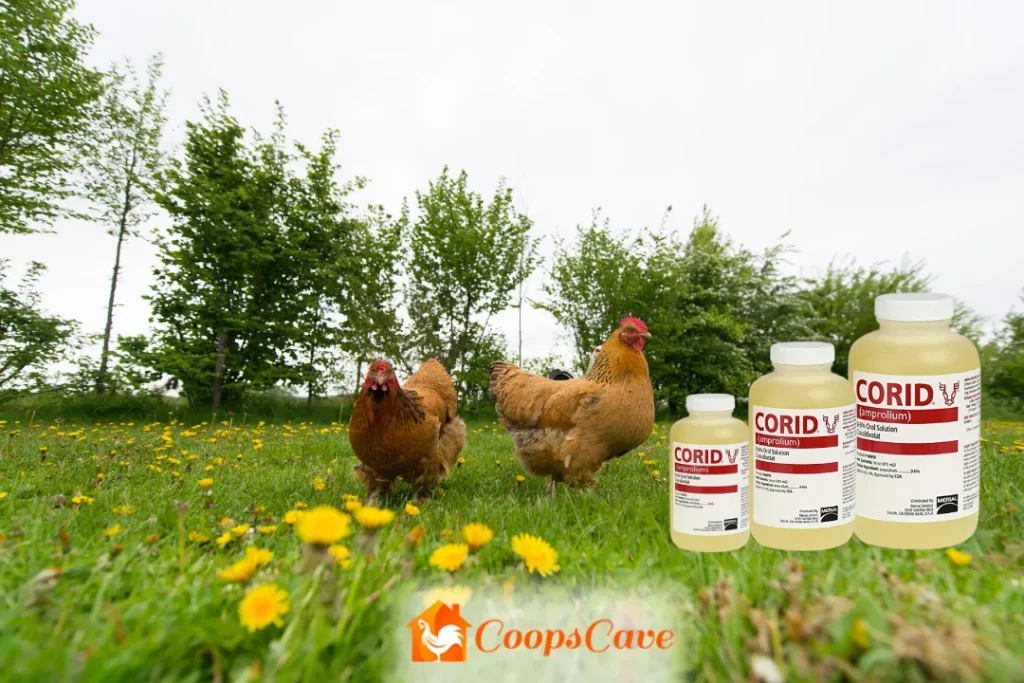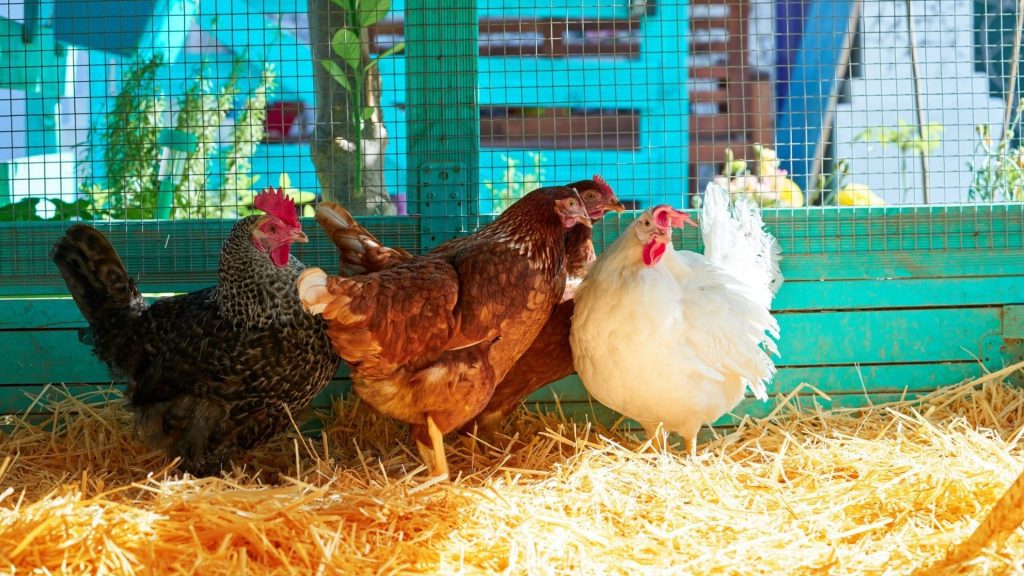When it comes to poultry health, ‘Corid treatment for chickens’ is a phrase that often comes up. Usually, chicken keepers use corid on chickens due to its rapid effectiveness and fast-acting features.
To use Corid effectively, you must know its standard dosage, administration method, treatment duration, dosage adjustment, and veterinary consultation. Avoid overdosing your chicken with Corid; otherwise, it can impose health issues on your birds.
After conducting in-depth research, we developed this comprehensive guide on Corid treatment for chickens. So keep reading this guide till the end!
What Is Corid?

Corid is a coccidiostat, a medication designed to inhibit the growth of coccidia parasites in chickens. It’s widely used in commercial poultry operations and backyard flocks due to its effectiveness and ease of administration.
Corid is available in two forms – a soluble powder and a liquid concentrate. Both forms are designed for easy mixing with drinking water. Generally, Corid is safe for chickens at the recommended dosage. However, like any medication, misuse can lead to adverse effects.
How Does Corid Work?
Corid is a vital tool in the fight against coccidiosis in chickens. Its unique mode of action allows it to control and treat this common parasitic disease effectively.
However, Corid’s special action method makes it so efficient against coccidiosis. Here’s how it functions:
- Thiamine Mimicry: Corid mimics thiamine (Vitamin B1), a nutrient coccidia parasite that needs to grow and multiply.
- Starving the Parasites: By taking the place of thiamine, Corid essentially starves the parasites. The parasites absorb the Corid instead of the thiamine they need, which inhibits their growth and multiplication.
- Treatment Duration: The treatment with Corid typically lasts for 5-7 days, during which the medication disrupts the life cycle of the coccidia. It prevents them from causing further damage to your chickens’ intestines.
- Post-Treatment Recovery: After the treatment, your chickens’ immune system can recover and gain resistance against the coccidia. It reduces the likelihood of future outbreaks.
Why Choose Corid?
Choosing Corid as a treatment option for your chicken comes with several benefits:
- Effectiveness: Corid has proven highly effective in controlling and treating coccidiosis.
- Ease of Use: Administering Corid is straightforward. It’s typically mixed with drinking water. Easy mixture with water lead to quick distribution among a large flock.
- Fast-Acting: Corid works quickly, often showing improvements in the flock’s health within a few days of starting treatment.
How To Effectively Use Corid Dosage?
Using the correct dosage of Corid is crucial in ensuring the medication’s effectiveness and the safety of your chickens. Here’s a detailed guide on how to effectively use Corid:
- Standard Dosage: The recommended dosage for Corid is 10mg per kg of your chicken’s body weight. This dosage is designed to be potent against the coccidia parasites without causing harm to your chickens.
- Administration Method: Corid is typically mixed with the chickens’ drinking water. This method allows for easy distribution of the medication among a large flock.
- Treatment Duration: The Corid treatment usually lasts 5-7 days. This duration is sufficient to disrupt the life cycle of the coccidia and prevent them from causing further damage.
- Veterinary Consultation: Consult a vet or poultry expert before starting any medication regimen.
- Dosage Adjustment: If your chickens are particularly large or small, or if the disease is severe, the dosage may need to be adjusted.
Monitoring During Treatment
Keeping a close eye on your flock during the treatment period is equally important. While monitoring your chicken’s treatment, look out for the following:
- Signs of Improvement: Look for signs of improvement in your flock. The improvement sign includes increased activity, improved appetite, and a decrease in the number of bloody droppings.
- Water Intake: Ensure that all chickens are drinking medicated water. If your chickens don’t drink water, they won’t receive a sufficient dose of the medication.
- Post-Treatment Monitoring: Continue to monitor your flock after the treatment period. If symptoms of coccidiosis persist, consult with a vet or poultry expert.
Using the correct dosage of Corid and closely monitoring your flock during treatment is key to successfully treating coccidiosis. Always consult with a vet or poultry expert before starting any medication regimen to ensure the safety and health of your flock.
Can You Overdose Chickens on Corid?
Yes, like any medication, Corid can be harmful if given excessively. Overdosing can lead to thiamine deficiency, as Corid also blocks the uptake of this essential vitamin in chickens.
Signs of Corid overdose may include weakness, unsteady movements, and loss of appetite. If you observe these symptoms, you must immediately stop the medication and consult a vet.
What Are The Alternatives To Corid?
Here’s a detailed look at some alternatives to Corid:
- Sulfa Drugs: Sulfa drugs, such as sulfadimethoxine and sulfamethazine, are another common treatment for coccidiosis. They inhibit the growth of coccidia but can have side effects like egg withdrawal in laying hens.
- Ionophores: Ionophores are an antibiotic that can control coccidiosis. They work by disrupting the coccidia’s cell functions. However, overdoses of Ionophores can be toxic, so be cautious while using it.
- Vaccination: Vaccines are available for coccidiosis. They expose chickens to controlled coccidia, helping them develop immunity.
- Natural Remedies: Some poultry keepers opt for natural remedies like oregano oil and apple cider vinegar. While these can boost overall health and immunity, their effectiveness against coccidiosis is not as well-studied as Corid or sulfa drugs.
- Preventive Measures: Remember, prevention is always better than cure. Maintaining clean living conditions, providing a balanced diet, and reducing stress can help prevent coccidiosis outbreaks.
End Note
For treating chickens, a very highly effective treatment is Corid. However, it’s crucial to use it responsibly to prevent overdose. If you have concerns about using Corid, there are alternatives available. Always consult a vet or poultry expert before starting any new treatment regimen.


